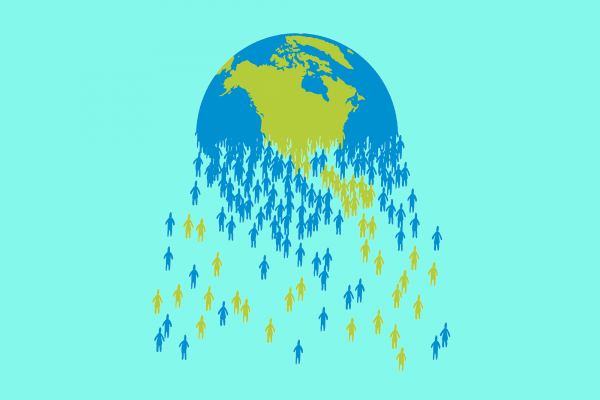THE IRRITATING THING about the Bible—well, one irritating thing about it—is that it keeps instructing us, in unambiguous terms, to do things we don’t want to.
On the first page it tells us to take care of the earth, which is quite embarrassing now that we’re fiddling with the thermostat and killing off large numbers of the creatures that we are supposed to look after.
Of course, it gets much worse once we reach the gospels and we’re told to take care of the poor and—well, I mean, come on, stop the steal. Nastiest of all is the quite specific demand to welcome the stranger. Clearly, we’re not into that—nearly three-quarters of white Christians voted for the candidate whose senior policy adviser, Stephen Miller, once said, “I would be happy if not a single refugee foot ever again touched American soil.”
These various unreasonable demands become even more unreasonable as time goes on, because they start to converge. Because we failed to take care of the earth, instead burning massive amounts of coal and gas and oil, we raised the temperature, and because hurricanes draw their power from the heat in the ocean, we now have more of them—this past season we set a record in the Atlantic, with a nonstop procession of storms that exhausted the regular alphabet and drove us deep into the Greek one. Hence, it was storms Eta and Iota that crashed into Central America in November, causing incredible wreckage: By some early estimates, Honduras saw damage equivalent to 40 percent of its GDP. (Katrina, one of America’s worst storms, cost us 1 percent of our GDP.) Not surprisingly, Honduras is now an even more difficult place to live—indeed, for many people an impossible one, given that food and shelter, which are actually necessary for survival, can’t be found.
Read the Full Article

